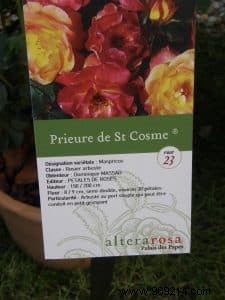User Question: Which rootstock should I choose for my roses?
As experienced rose growers know, selecting the right rootstock is key to healthy, thriving plants. Below, we detail the most common rootstocks used in rose cultivation, highlighting their pros, cons, and ideal applications. Keep in mind that breeders aren't required to disclose the rootstock variety on their plants, making it a bit of a puzzle for gardeners.
Benefits: Promotes vigorous growth. Excellent for pot roses, polyanthas, and climbing roses.
Disadvantages: Avoid for large-flowered roses and Tea hybrids, as it significantly shortens plant lifespan.
Note: Not ideal for highly calcareous soils (risk of chlorosis).
Benefits: Strong growth and resistance to powdery mildew. An ideal rootstock.
Disadvantages: Insufficient hardiness in regions like Germany.
Note: Not suitable for highly calcareous soils (risk of chlorosis).
Benefits: Well-suited to most large-flowered varieties. Excellent for standards (stems) and forcing roses, with robust root systems.
Disadvantages: Moderate growth that stops early. Unsuitable for maritime climates and susceptible to powdery mildew.
Benefits: Great for standards, vigorous growth, suitable for dwarf roses, and frost-resistant.
Disadvantages: Produces relatively long, thin roots with many sharp ones.
Benefits: Nearly spineless with growth extending late into winter. Supports nearly all large-flowered varieties excellently. Strong rooting, disease-resistant foliage. The best in the canina series—especially for climbing roses, Polyanthas, and standards (though young stems are slender). Thrives in maritime climates with excellent roots.
Disadvantages: Poor drought tolerance; drops leaves and halts growth quickly in dry conditions.
Benefits: Nearly spineless with minimal suckering. Dark red Tea hybrids thrive, showing vibrant colors. Perfect for heavy calcareous soils and boasts the strongest root development of all rootstocks.
Disadvantages: Not all Tea roses perform well. Requires high potash and lime; prone to severe rust without them.
Note: Early dormancy promotes wood maturation, enhancing frost resistance. Widely used in eastern France and Switzerland.
Source: jardiweb.aceboard.fr forum


